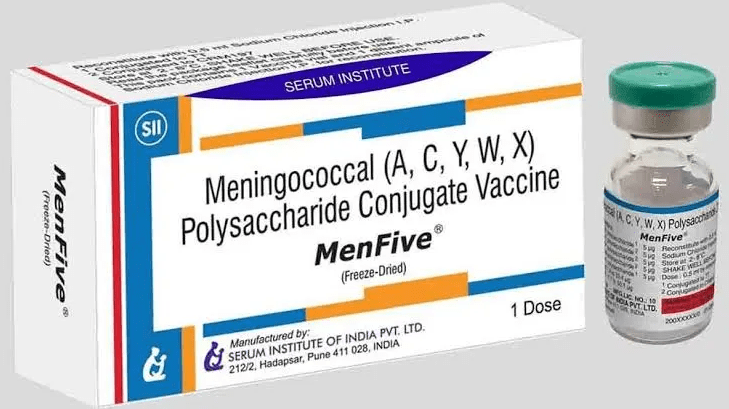Breakthrough Men5CV Vaccine provides relief for Nigerians battling meningitis
Upon reaching the nomadic settlement of Dongawaki, located at Sule Tankarkar Local Government Area (LGA), in Jigawa State, Usman Alasan, 55 years old, utilized his megaphone to announce the arrival of the vaccination team at around 10 am.
Shortly after, Ramatu Ali, a mother of five who tragically lost her 12-year-old son Ambali to meningitis a few weeks prior, paused her chores to gather all the children in her compound and bring them to the vaccination post situated opposite her home.
The children were administered the new meningitis vaccine, Men5CV, which provides protection against five strains of the disease. Expressing her determination to safeguard her loved ones, Ramatu emphasized the importance of vaccination, stating, “They must all get vaccinated because I don’t want any of my family or relatives to have such an experience.”
Reflecting on her son’s harrowing ordeal, she recounted how the community had initially believed Ambali to be deceased before he miraculously regained consciousness and was promptly taken to the hospital. Ambali had exhibited symptoms such as fever, headache, and overall illness.
Following his treatment at the General Hospital in Gumel, supported by the Jigawa State Government, Medeccins San Frontieres (MSF), and the World Health Organization (WHO), Ambali recovered from the illness. However, he continues to bear physical scars from the ordeal.
In response to the outbreak of Neisseria meningitidis serogroup C in Nigeria, which resulted in numerous cases and fatalities across several states, a vaccination campaign was conducted from 25th to 28th March 2024, targeting over one million individuals aged 1-29 years. Ambali and his mother now stand together in front of their home, grateful for his recovery from meningitis.
The government of Nigeria, in collaboration with the National Primary Healthcare Development Agency, partnered with the WHO and Gavi, the Vaccine Alliance, to implement a campaign utilizing the Men5CV vaccine. This vaccine provides protection against five major strains of bacteria (A, C, W, Y, and X) that cause meningitis. By administering a single shot, this vaccine offers a powerful shield against the disease.
According to Dr. Walter Kazadi Mulombo, the WHO Country Representative in Nigeria, meningitis is a vaccine-preventable disease that is causing unnecessary deaths in various populations. The Men5CV vaccine has been prequalified by the WHO as safe and effective in preventing future outbreaks and saving lives. The WHO urges partners and stakeholders to collaborate with governments in eliminating meningitis by 2030, and assures continued support in maximizing the benefits of vaccination in Nigeria.
In the states of Jigawa, Bauchi, and Yobe, where the campaign was conducted, the target population was covered at rates of 103%, 101%, and 45% respectively.
Mukarram Rabilu, the village head of the Fulani nomadic settlement, expressed the importance of preventing sickness and deaths from meningitis across their villages. He mentioned that most of their children have already received the vaccine.
Meningitis is a severe infection that causes inflammation of the membrane surrounding and protecting the brain and spinal cord. The WHO states that it is transmitted from person to person through respiratory and throat secretions.
During the campaign, Mr. Hassan Shehu Usman, an official from NPHCDA, stated that additional vaccination centers were established to ensure the effective administration of vaccines to individuals aged one to 29. He also emphasized the intensification of an awareness campaign to educate people about the significance of immunization.
In order to carry out the campaign, the World Health Organization (WHO) played a crucial role in providing guidance, coordination, and assistance to the Nigerian government in their request for the new MenFive vaccines from the stockpile of the International Coordinating Group (ICG) on Vaccine Provision.
Furthermore, WHO provided support for the training of healthcare professionals in vaccination techniques, monitoring adverse events following immunization (AEFI), and promoting good practices to ensure the successful implementation of the campaign.
Thanks to collaboration with various development partners, including UNICEF, healthcare workers, government officials, and volunteers, the campaign achieved success by vaccinating a total of 1,003,945 individuals in high-risk areas.
The conjugate vaccine was developed through a partnership between PATH and the Serum Institute of India, with funding from the UK government’s Foreign and Commonwealth Office.




